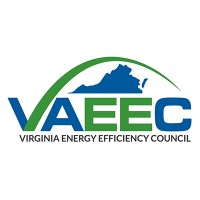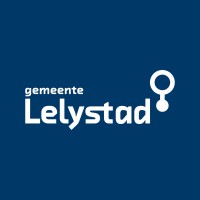Company Details
virginia-energy-efficiency-council
7
995
921
vaeec.org
0
VIR_2862279
In-progress

Virginia Energy Efficiency Council Company CyberSecurity Posture
vaeec.orgFounded in 2012, VAEEC is a 501c3 organization, headquartered in Richmond, whose goal is to facilitate discussions and share resources to advance energy efficiency throughout the Commonwealth. We engage our members to identify barriers to and opportunities for energy efficiency advancement, and to develop a strong, fact-based, and balanced industry voice before local, state, and national policymakers and regulators. Our diverse group of over 100 members includes Fortune 500 companies, nonprofits, local governments, state agencies, and more whose vision is for energy efficiency to be an integral part of Virginia’s economy and clean energy future.
Company Details
virginia-energy-efficiency-council
7
995
921
vaeec.org
0
VIR_2862279
In-progress
Between 700 and 749

 VEEC Global Score (TPRM)
VEEC Global Score (TPRM)XXXX



No incidents recorded for Virginia Energy Efficiency Council in 2025.
No incidents recorded for Virginia Energy Efficiency Council in 2025.
No incidents recorded for Virginia Energy Efficiency Council in 2025.
VEEC cyber incidents detection timeline including parent company and subsidiaries

Founded in 2012, VAEEC is a 501c3 organization, headquartered in Richmond, whose goal is to facilitate discussions and share resources to advance energy efficiency throughout the Commonwealth. We engage our members to identify barriers to and opportunities for energy efficiency advancement, and to develop a strong, fact-based, and balanced industry voice before local, state, and national policymakers and regulators. Our diverse group of over 100 members includes Fortune 500 companies, nonprofits, local governments, state agencies, and more whose vision is for energy efficiency to be an integral part of Virginia’s economy and clean energy future.


As a statewide non-profit organization, Texans Care for Children conducts research and engages communities to identify ways that state policies should change to ensure Texas kids and families succeed. We then work with legislators, state officials, partners, the media, and everyday Texans to build s

We are a centre of expertise and exchange in European public affairs, that provides you the complete skill set to fully understand and effectively manage EU policies. We are supported by the EU Member States and the European Commission. Our seminars and courses are usually held in small groups, wi

Maastricht is de hoofdstad van de provincie Limburg en telt meer dan 123.000 inwoners. Het is de geboortestad van de Europese Unie en de euro. De grensligging van Maastricht maakt dat mensen in deze regio grensoverschrijdend denken en handelen, verbinden en bruggen bouwen. Vanuit deze unieke interna

Lelystad, hoofdstad van de provincie Flevoland, bestaat sinds 1967. Met nu 80.000 inwoners en de ambitie om door te groeien naar 100.000 inwoners plus de daarbij horende 35.000 tot 40.000 arbeidsplaatsen is Lelystad altijd bezig met vooruitgang. Enthousiaste en gemotiveerde medewerkers van gemeente

The National Association of Counties (NACo) is the only national organization that represents county governments in the United States. Founded in 1935, NACo assists America’s 3,069 counties in pursuing excellence in public service to produce healthy, vibrant, safe and resilient counties. NACo promot

Nevada Succeeds is dedicated to maximizing our education system's human talent, ensuring education professionals are empowered to operate at their highest levels. We explore, research, brainstorm, and prototype classroom, leadership, and policy initiatives that define and redefine success. A nonpr
.png)
EERS, which require utilities to achieve a certain percentage of energy savings based on the amount of electricity or natural gas sold in the state.

Explore insights on cybersecurity incidents, risk posture, and Rankiteo's assessments.
The official website of Virginia Energy Efficiency Council is http://www.vaeec.org.
According to Rankiteo, Virginia Energy Efficiency Council’s AI-generated cybersecurity score is 742, reflecting their Moderate security posture.
According to Rankiteo, Virginia Energy Efficiency Council currently holds 0 security badges, indicating that no recognized compliance certifications are currently verified for the organization.
According to Rankiteo, Virginia Energy Efficiency Council is not certified under SOC 2 Type 1.
According to Rankiteo, Virginia Energy Efficiency Council does not hold a SOC 2 Type 2 certification.
According to Rankiteo, Virginia Energy Efficiency Council is not listed as GDPR compliant.
According to Rankiteo, Virginia Energy Efficiency Council does not currently maintain PCI DSS compliance.
According to Rankiteo, Virginia Energy Efficiency Council is not compliant with HIPAA regulations.
According to Rankiteo,Virginia Energy Efficiency Council is not certified under ISO 27001, indicating the absence of a formally recognized information security management framework.
Virginia Energy Efficiency Council operates primarily in the Public Policy Offices industry.
Virginia Energy Efficiency Council employs approximately 7 people worldwide.
Virginia Energy Efficiency Council presently has no subsidiaries across any sectors.
Virginia Energy Efficiency Council’s official LinkedIn profile has approximately 995 followers.
No, Virginia Energy Efficiency Council does not have a profile on Crunchbase.
Yes, Virginia Energy Efficiency Council maintains an official LinkedIn profile, which is actively utilized for branding and talent engagement, which can be accessed here: https://www.linkedin.com/company/virginia-energy-efficiency-council.
As of November 28, 2025, Rankiteo reports that Virginia Energy Efficiency Council has not experienced any cybersecurity incidents.
Virginia Energy Efficiency Council has an estimated 1,023 peer or competitor companies worldwide.
Total Incidents: According to Rankiteo, Virginia Energy Efficiency Council has faced 0 incidents in the past.
Incident Types: The types of cybersecurity incidents that have occurred include .
.png)
Angular is a development platform for building mobile and desktop web applications using TypeScript/JavaScript and other languages. Prior to versions 19.2.16, 20.3.14, and 21.0.1, there is a XSRF token leakage via protocol-relative URLs in angular HTTP clients. The vulnerability is a Credential Leak by App Logic that leads to the unauthorized disclosure of the Cross-Site Request Forgery (XSRF) token to an attacker-controlled domain. Angular's HttpClient has a built-in XSRF protection mechanism that works by checking if a request URL starts with a protocol (http:// or https://) to determine if it is cross-origin. If the URL starts with protocol-relative URL (//), it is incorrectly treated as a same-origin request, and the XSRF token is automatically added to the X-XSRF-TOKEN header. This issue has been patched in versions 19.2.16, 20.3.14, and 21.0.1. A workaround for this issue involves avoiding using protocol-relative URLs (URLs starting with //) in HttpClient requests. All backend communication URLs should be hardcoded as relative paths (starting with a single /) or fully qualified, trusted absolute URLs.
Forge (also called `node-forge`) is a native implementation of Transport Layer Security in JavaScript. An Uncontrolled Recursion vulnerability in node-forge versions 1.3.1 and below enables remote, unauthenticated attackers to craft deep ASN.1 structures that trigger unbounded recursive parsing. This leads to a Denial-of-Service (DoS) via stack exhaustion when parsing untrusted DER inputs. This issue has been patched in version 1.3.2.
Forge (also called `node-forge`) is a native implementation of Transport Layer Security in JavaScript. An Integer Overflow vulnerability in node-forge versions 1.3.1 and below enables remote, unauthenticated attackers to craft ASN.1 structures containing OIDs with oversized arcs. These arcs may be decoded as smaller, trusted OIDs due to 32-bit bitwise truncation, enabling the bypass of downstream OID-based security decisions. This issue has been patched in version 1.3.2.
Suricata is a network IDS, IPS and NSM engine developed by the OISF (Open Information Security Foundation) and the Suricata community. Prior to versions 7.0.13 and 8.0.2, working with large buffers in Lua scripts can lead to a stack overflow. Users of Lua rules and output scripts may be affected when working with large buffers. This includes a rule passing a large buffer to a Lua script. This issue has been patched in versions 7.0.13 and 8.0.2. A workaround for this issue involves disabling Lua rules and output scripts, or making sure limits, such as stream.depth.reassembly and HTTP response body limits (response-body-limit), are set to less than half the stack size.
Suricata is a network IDS, IPS and NSM engine developed by the OISF (Open Information Security Foundation) and the Suricata community. In versions from 8.0.0 to before 8.0.2, a NULL dereference can occur when the entropy keyword is used in conjunction with base64_data. This issue has been patched in version 8.0.2. A workaround involves disabling rules that use entropy in conjunction with base64_data.

Get company history
















Every week, Rankiteo analyzes billions of signals to give organizations a sharper, faster view of emerging risks. With deeper, more actionable intelligence at their fingertips, security teams can outpace threat actors, respond instantly to Zero-Day attacks, and dramatically shrink their risk exposure window.
Identify exposed access points, detect misconfigured SSL certificates, and uncover vulnerabilities across the network infrastructure.
Gain visibility into the software components used within an organization to detect vulnerabilities, manage risk, and ensure supply chain security.
Monitor and manage all IT assets and their configurations to ensure accurate, real-time visibility across the company's technology environment.
Leverage real-time insights on active threats, malware campaigns, and emerging vulnerabilities to proactively defend against evolving cyberattacks.




